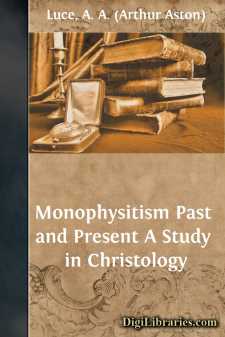Non-Classifiable
- Non-Classifiable 1768
Non-Classifiable Books
Sort by:
CHAPTER I Moths of the Limberlost To me the Limberlost is a word with which to conjure; a spot wherein to revel. The swamp lies in north-eastern Indiana, nearly one hundred miles south of the Michigan line and ten west of the Ohio. In its day it covered a large area. When I arrived; there were miles of unbroken forest, lakes provided with boats for navigation, streams of running water, the roads around...
more...
In the life of any individual, association, or nation, there will probably be one or more occurrences which may be considered as success or failure according to the dramatic features of the event and the ultimate results. Of this the Battle of Bunker Hill is a striking example. On the morning of June 17th, 1775, a force of British soldiers attacked a small body of raw, ill-equipped American volunteers,...
more...
PREFACE. Born in one of the most beautiful provinces of France, in a country of noble forests and extensive vineyards; brought up in the open air amidst the blue hills, and ever wandering over the fields and mountains with a gun on my arm—all the hours of my youth, if I may so say, were spent in search of partridges and hares in the dewy stubbles, and in the pursuit of the wild cat and the boar in...
more...
The duty of bringing up the young in the way of usefulness has ever been acknowledged as of utmost importance to the well-being and safety of a State. So imperative was this obligation considered by Solon, the Athenian lawgiver, that he excused children from maintaining their parents, when old and feeble, if they had neglected to qualify them for some useful art or profession. Although this principle...
more...
by:
John Dewey
Education as a public business It is one of the complaints of the schoolmaster that the public does not defer to his professional opinion as completely as it does to that of practitioners in other professions. At first sight it might seem as though this indicated a defect either in the public or in the profession; and yet a wider view of the situation would suggest that such a conclusion is not a...
more...
by:
Henry Morley
It was in 1824 that Robert Southey, then fifty years old, published “Sir Thomas More, or Colloquies on the Progress and Prospects of Society,” a book in two octavo volumes with plates illustrating lake scenery. There were later editions of the book in 1829, and in 1831, and there was an edition in one volume in 1837, at the beginning of the reign of Queen Victoria. These dialogues with a...
more...
AKBAR, EMPEROR OF INDIA. The student of India who would at the same time be an historian, discovers to his sorrow that the land of his researches is lamentably poor in historical sources. And if within the realm of historical investigation, a more seductive charm lies for him in the analysis of great personalities than in ascertaining the course of historical development, then verily may he look about...
more...
by:
Horace Wyndham
FOREWORD Sweep a drag-net across the pages of contemporary drama, and it is unquestionable that in her heyday no name on the list stood out, in respect of adventure and romance, with greater prominence than did that of Lola Montez. Everything she did (or was credited with doing) filled columns upon columns in the press of Europe and America; and, from first to last, she was as much "news" as...
more...
MIND AND MOTION [REDE LECTURE, 1885.] The earliest writer who deserves to be called a psychologist is Hobbes; and if we consider the time when he wrote, we cannot fail to be surprised at what I may term his prevision of the most important results which have now been established by science. He was the first clearly to sound the note which has ever since constituted the bass, or fundamental tone, of...
more...
CHAPTER I THE METAPHYSICAL BASIS OF MONOPHYSITISM Monophysitism was a Christological heresy of the fifth century. It was condemned by the church in the middle of that century at the council of Chalcedon. Surviving its condemnation it flourished in the East for several centuries. Its adherents formed themselves into a powerful church with orders and succession of their own. Although the monophysite...
more...




![Le Morvan, [A District of France,] Its Wild Sports, Vineyards and...](https://digilibraries-com.s3.eu-central-1.amazonaws.com/covers/ec4e063b-538c-4bca-b359-e51cd1f15c27.jpg)






